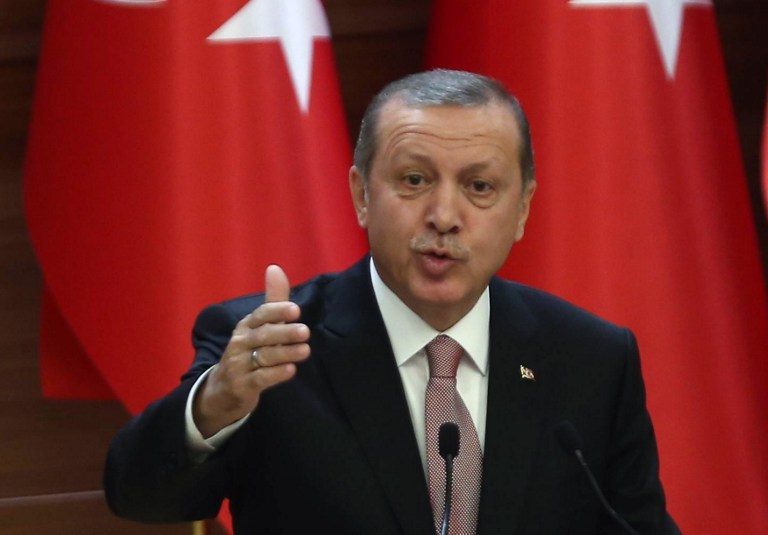
Saudi Arabia has recently tried to develop a new economic strategy and completed a major restructuring of its important ministries. The large-scale vision was initiated as part of its “Saudi Vision 2030” to diversify its economy away from its oil base. The new vision is said to be initiated by young Deputy Crown Prince Mohammad bin Salman, who has been entrusted with leading roles in the military and economic affairs of the kingdom.
However, the Saudis will also need to fix their “age-old redundant foreign policy similar to the way they are restructuring their domestic policies, especially their policy of supporting the dictator in the most populous country in the Arab world.” said Daily Sabah, a Turkish daily newspaper in an article by Mohammad Perves Bilgrami.
The Turkish daily newspaper wrote in its article titled: “Saudi Arabia needs to fix its Egypt policy” that the Saudi policies in Egypt are very crucial as they unswervingly impact the Arab Achilles heels in Iraq, Syria, Lebanon, Yemen and Libya and can positively guide their maneuvering in the tumultuous region.
Moreover, the Saudi ruling dispensation must understand that Egyptians will ultimately get back their lost revolution, and they should fix Egypt before it becomes too late.
King Salman has visited Egypt for a five-day visit in the first official visit to Egypt after taking the throne last year. King Salman’s is the half-brother of King Abdullah who had helped the Egyptian military coup and poured billions of dollars to strengthen the brutal dictatorship in Egypt.
Under the reign of King Abdullah who passed away in January last year, Saudis have faced many setbacks in their foreign policy from Iraq to Syria and from Lebanon to Yemen, in the last few years.
The problem started with US invasion to Iraq that “served Iraq to Iran on a platter and later facilitated Iran’s entry into the international community after signing the deal that lifted the three decades of sanctions on the country, “said the Daily Sabah.
Another setback was in Syria, the Saudis failed to gain the American support to topple Assad dictatorship in Syria, a regime that has been working as a veritable arm of “revolutionary” Iran. On the other hand, Ali Abdullah Saleh, the former president of Yemen, and a Saudi stooge for a long time, switched his loyalty to Saudi Arabia’s sworn enemy, the Iran-backed Houthi rebels. The huge humiliation had forced the new dispensation in Riyadh to take stringent military action against the combined forces loyal to Saleh and the Houthi militia.
On the other hand, Ali Abdullah Saleh, the former president of Yemen, and a Saudi ally for a long time, switched his loyalty to Saudi Arabia’s sworn enemy, the Iran-backed Houthi rebels. Daily Sabah wrote,”The huge humiliation had forced the new dispensation in Riyadh to take stringent military action against the combined forces loyal to Saleh and the Houthi militia.”
In the Egyptian arena, Egypt openly supported the revolution in Syria and maintained the removal of Bashar Assad as essential to end the civil war in Syria during the one year of Egyptian President Mohammed Morsi’s rule. However, Saudi Arabis has soon backed the military coup in Egypt which divert the Saudi foreign policy regarding Syria. The Saudi-backed coup regime in Cairo altered its Syria policy and started backing Assad, the only old-guard dictatorial regime left in the Middle East. Since the military took over in July 2013, the people in Egypt have been forced to be silent about the Syrian crisis.
The Saudi-backed coup regime started backing Assad, the only old-guard dictatorial regime left in the Middle East. Since the military took over in July 2013, the people in Egypt have been forced to be silent about the Syrian crisis. One of the negative repercussions of the Saudis support to Egypt’s military coup is that Egypt the most populous Arab country, withdrew its support from the Syrian opposition and its supporters started harassing Syrian refugees in Egypt. Another setback in the Saudis foreign policy as “It is pertinent to say that the Saudi-backed coup government in Egypt has directly strengthened the Assad regime and its chief patron, Iran,” reported the Daily Sabah.
Moreover, al-Sisi did not only stall Saudi efforts in Syria, he also ditched Saudi moves in Yemen. Egypt had promised to back Saudi Arabia with ground troops in Yemen if needed, but ultimately balked when the actual military operation started. “This is a common trait of dictators – they are only loyal to their greed for power,”said the Daily Sabah.
Despite the various facts, Saudi coffers still pour money to al-Sisi regime when required. During his stay in his King Salman announced another $1.7 billion aid package to Egypt’s terminally corrupt economy, and $16 billion of joint investment funds, an industrial park and a causeway to connect Egypt and Saudi Arabia. It is fair to predict that neither the new $1.7 billion economic package nor the proposed causeway connecting the two countries with an oversea bridge will bring economic prosperity and stability to the country where endemic corruption is deep rooted.
But the previous multibillion-dollar aid packages could not bring any comfort and prosperity to the lives of ordinary Egyptians due to widespread corruption and the administrative incompetence of the Sissi regime. In addition, the Egyptian public stance toward Saudi Arabia has tensioned recently after al-Sisi gave away the two Red Sea Islands-Tiran and Sanafir- to Saudi Arabia.Many Egyptians believe that Sisi sold Egyptian national assets for a fistful of dollars.
“Many Egyptians believe that Sisi sold Egyptian national assets for a fistful of dollars. He recently handed over two Red Sea islands to Saudi Arabia in return for a $16 billion investment fund to support an industrial park and bridge over the Red Sea,” said Daily Sabah.
But whether it is al-Sisi’s skill or Saudi diplomatic myopia, “al-Sisi has been capable of extracting money even after supporting the Iran-backed Russian crusade in Syria to prevent Assad’s fall, literally by undermining Saudi policy in Syria,” said the Daily Sabah.
It also seems that Saudis still prefer the military dictatorship after all. The Saudis still seem content with a feckless military dictator in Egypt even after envisaging a new realism and pragmatism under Salman and his son, Defense Minister Mohammad. Daily Sabah wrote,”They would rather prefer a change in command than a change in the system of governance.”
In fact, the in command may work as a provisional way out, but it is a fact that Egyptians will not be satisfied with anything “less than an enduring solution to eradicate the incumbent, terminally corrupt, totalitarian state structure. Saudis ought to understand that the old instruments of power in Egypt such as money, military, myths, media and manipulation have already been exposed and their effectiveness has been blunted,” the Daily Sabah wrote.
In this context, the Saudis are paying the price for their foreign policy setbacks. As a result, the Saudis have failed to contain the growing Iranian influence in the region. In return, Iran has taken full advantage of this situation, and the chaos in Iraq, Syria and Yemen has provided it with fertile ground to propagate its sectarian agenda. Daily Sabah wrote,”This is also an outcome of the lackluster Saudi policies of the previous regimes that allowed all this to happen in the first place.” Ideally, the series of previous foreign policy setbacks should have prompted Saudi Arabia to try new measures in Egypt. At the time when Iranian expansionist ambitions are at its peak, Saudis were expected to do some course correction in their moribund foreign policy, especially on the Egyptian front. The old policy of propping up dictators will not help the Saudis achieve anything significant in a region grappling with hugely tumultuous conditions.
Daily Sabah also blamed the Saudis for their foreign policy in Egypt and backing the military coup especially after the series of previous foreign policy setbacks that should have prompted Saudi Arabia to try new measures in Egypt. At the time when Iranian expansionist ambitions are at its peak, Saudis were expected to do some course correction in their moribund foreign policy, especially on the Egyptian front. The old policy of propping up dictators will not help the Saudis achieve anything significant in a region grappling with hugely tumultuous conditions.
“At the time when Iranian expansionist ambitions are at its peak, Saudis were expected to do some course correction in their moribund foreign policy, especially on the Egyptian front. The old policy of propping up dictators will not help the Saudis achieve anything significant in a region grappling with hugely tumultuous conditions,” said the Daily Sabah.
In the end, Saudi Arabia must revise its foreign policy in backing Egypt’s dictator as time has changed and it has become increasingly difficult for dictators to hold on to power as they used to before. “The Saudi ruling dispensation must understand that Egyptians will ultimately get back their lost revolution, and they should fix Egypt before it becomes too late, such that even the time for saving face vanishes,” said the Daily Sabah. It continued,”If new Saudi dispensation is really serious enough to meet the emerging challenges in the region, then they will have to refit their foreign policy by quickly solving the Egyptian conundrum.”



